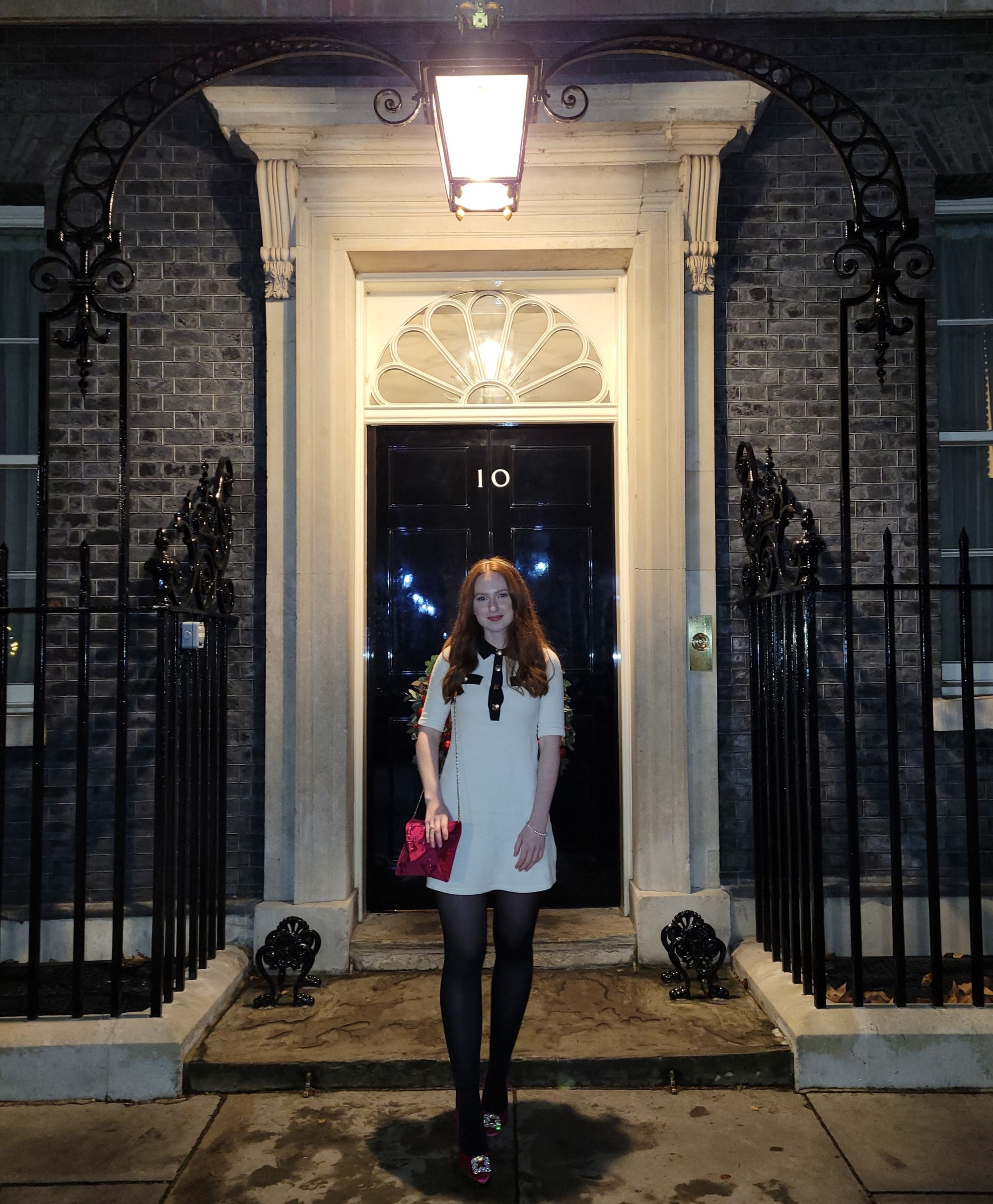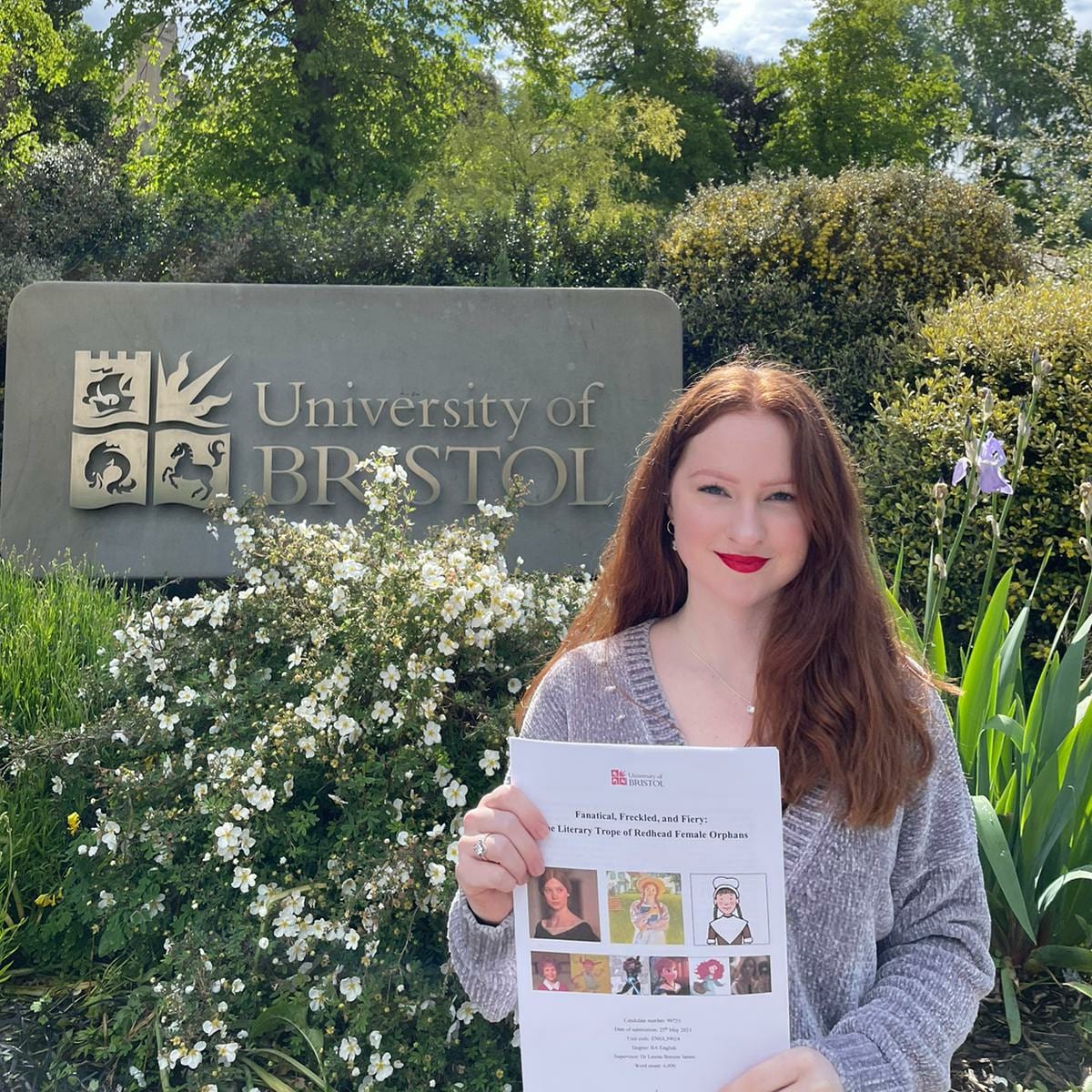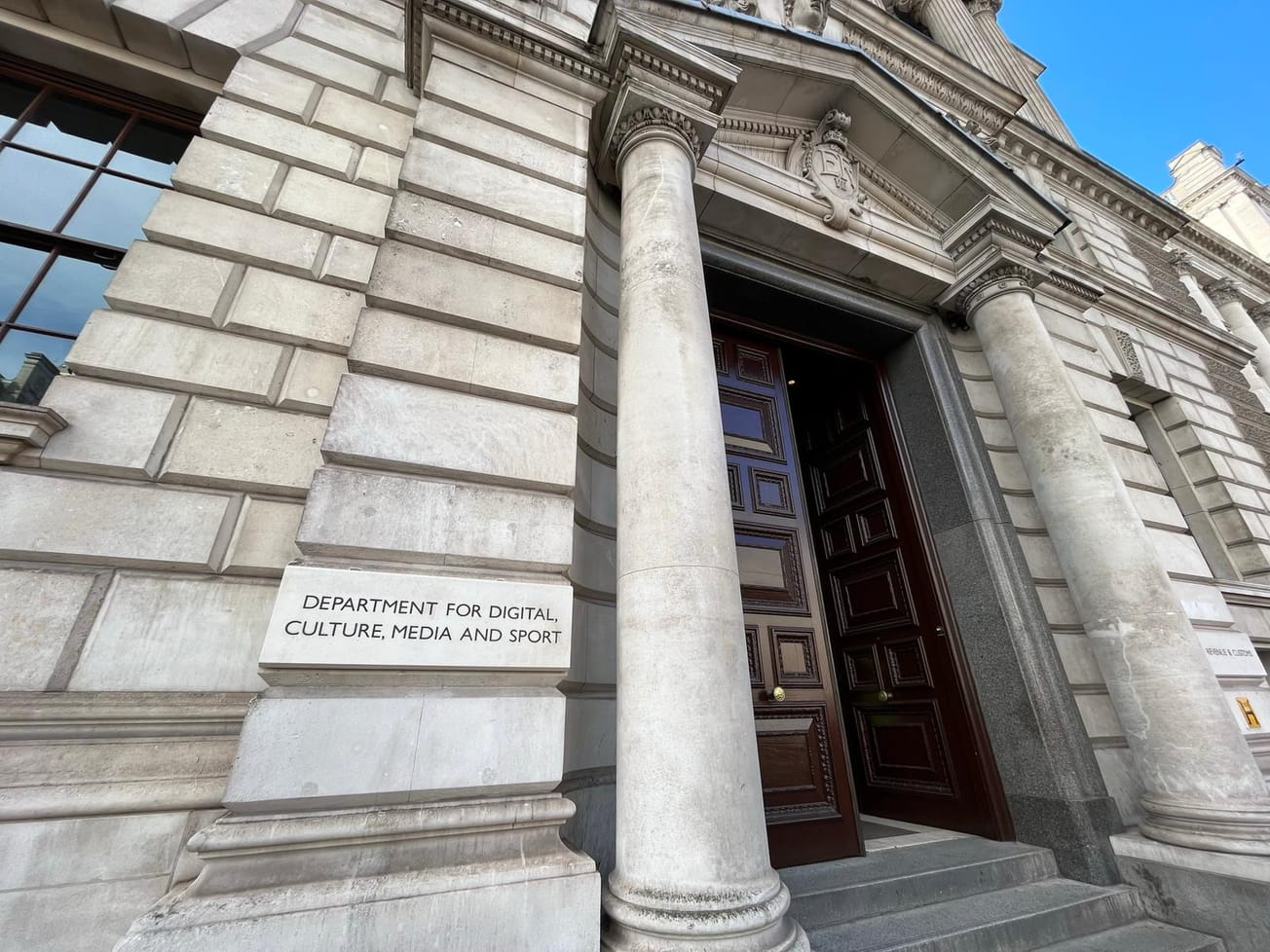By Marine Saint, Features Columnist and Subeditor
In late December, Epigram met with one of the University’s most recent successful graduates. Returning to the all-too familiar Zoom call, Epigram spoke with Policy Advisor at the Department for Education and class of 2021 English graduate, Tiegan Bingham-Roberts.
Despite only graduating last summer, Tiegan’s CV details an impressive number of awards and achievements which contributed to reaching her goal of working to improve inequalities across the UK as a civil servant, many of which she credits to her time as an undergraduate in Bristol.
For Tiegan, who is originally from a small Gloucestershire town, the choice to study at Bristol was decided by her love for the city and its proximity to her family. Her childhood ties also influenced her decision to study English, which Tiegan told me came from her love of reading. Many humanities students can relate to Tiegan’s view that ‘reading was that chance to have an escape, experience different cultures, and learn about different people.’ As well as supporting her creative flair, the practical implications of studying an arts degree gave added flexibility for the many extra-curriculars Tiegan participated in.
Right from the start of her university experience, Tiegan thoroughly immersed herself into the various societies and additional activities available to her. In her first year, Tiegan was elected as a Course Rep for English, a role which she kept throughout her time in Bristol and was also elected Vice President of the JCR committee for her undergraduate halls, at No.33 East Village, formerly named Colston Street.
Although Tiegan is a natural communicator, she told me that her introverted personality meant that taking on committee roles helped her meet new people and gain confidence on campus. In second year, Tiegan was the Director of Marketing for the Commercial Awareness Society, and in her final year she assumed the role of Equality and Outreach officer for The 93% Club Bristol. Founded at the University of Bristol, The 93% Foundation is now a nationwide a student-led charity providing a social mobility network for students from a state school educational background.
Tiegan and I discussed the importance of a welcoming environment and support structures for students from all backgrounds at the University. As part of Tiegan’s many voluntary positions which she took on alongside working part-time for the University, she was a Widening Participation Ambassador, Bristol Futures Advocate, and worked on various Alumni Telethon Campaigns. Access to higher education is a subject which Tiegan is especially passionate about, and she recognises how there are positive steps being taken towards inclusivity at Bristol with the diverse scholarship schemes available.
Tiegan explained how ‘funding is always a barrier to access, and so the University being able to offer scholarships for students is so important. That’s why I really liked working on the telethons, especially as so many of the scholarships help students from lower socio-economic backgrounds.’ In terms of what can be done to widen participation at Bristol, Tiegan stressed that it ‘is important for the University to reflect the diversity of the city it is in.’ For Tiegan, this comes down to culture as well as funding to ensure that students from all backgrounds feel welcome at the University, that their experiences are valued, and that they have something to contribute to the university culture of Bristol.
Tiegan has worked tirelessly to help young people, raising over £12,000 for charities related to children and education, including taking part in NCS and ICS projects. Her efforts were celebrated in September 2021 as she won two Student Social Mobility Awards awards, including the Government and Public Sector Award, at the social mobility organisation upReach’s annual ceremony at the UK House of Lords. Offering many career streams for students from underrepresented backgrounds, Tiegan took part in workshops, insight days and 1-1 meetings as part of upReach’s Government and Public Sector Springboard Programme.
Attending the ceremony inside the Houses of Parliament gave Tiegan hope for the future of social mobility and caused her to reflect on her childhood, having grown up in a rural community at a school under special measures where the needs of students and their education were often neglected due to constraints on time and resources. Hearing about the charitable work of so many other students was ‘very heart-warming and one of those moments that gives you faith in humanity and the next generation, as it reminds you that there are so many people doing good out there.’
At the time of the awards, Tiegan was completing her Government Communication Service internship, which was open to students from diverse backgrounds. Tiegan acknowledged the uncertainty of graduating, especially during the pandemic. Even with working remotely from her bedroom, Tiegan felt lucky to have the role and to be offered an extension by the Department for Environment, Food & Rural Affairs where she was placed, and because of the awards was invited to speak on podcasts, BBC News, and in various roundtable meetings, including with a Civil Service Director and champion of social mobility.
‘I’m 23 and had just finished university. I’m definitely not an expert on education and social mobility in a qualifications sense, but because of my background and various roles I am in an expert through experience, which informs my work.. Winning the SSMAs definitely gave me more confidence - it was a recognition of all the hard work I’d put in over the years.’
Ending education inequality and helping young people from similar backgrounds to broaden their horizons is Tiegan’s main goal and motivation. It is no surprise that Tiegan has wanted to work in the Department for Education for a long time, and after graduating from the Patchwork Foundation Masterclass Programme where she was able to meet the Secretary of State for Education, Nadhim Zahawi, she is now commencing working in the Curriculum Strategy team..

Tiegan will be working on the national curriculum, helping schools recover from the aftermath of the pandemic and aiding children make up for their lost learning, especially the disproportionate loss of learning in children from disadvantaged or lower socio-economic backgrounds. For Tiegan, the key career advice she has is to maximise the opportunities you have at university and apply yourself to what you are truly passionate about, because you end up genuinely enjoying the process as well as seeing the career benefits. Tiegan emphasised how employers easily spot real interest and passion in their applicants: ‘all the individual experiences you have at university play into each other and impact what you do next even if you don’t realise it at the time.’
One of Tiegan’s most impressive achievements was her ability to co-write and implement a new policy as a Course Rep for English undergraduates to make content notes compulsory on sensitive learning materials across the University. After hearing about the toll sensitive course materials were taking on students’ mental health, Tiegan’s undertook her first experience with policy-writing to introduce an element of safety into approaching more difficult topics. This experience later inspired her career aspirations, and enabled her to stand out in her latest job interview.
We ended our discussion with Tiegan reminiscing on her highlights whilst in Bristol, which included The Falstaff Society’s Romeo and Juliet-themed masquerade ball, where she felt she truly started to connect with her course mates. As many of us would agree with the return to in-person teaching, it was ultimately the experience of being on campus at the University she worked so hard to get into that Tiegan cherishes. It was clear to me over the course of our hour-long call that Tiegan is incredibly committed to improving inequalities and is an inspiration not only to those looking to work in the Civil Service, but to all students.
Featured Image: Epigram | Tiegan Bingham-Roberts









